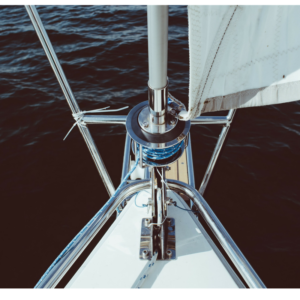 Known as the “Venice of America,” South Florida’s very own Fort Lauderdale is known as a very busy intracoastal city. From Naples to the active and engaging ports of Fort Lauderdale and Miami, Florida has become a prime location for cruising and boating activities. It is important that you have the proper knowledge to protect your water-going vessel in the blue-green oceans of the sunshine state.
Known as the “Venice of America,” South Florida’s very own Fort Lauderdale is known as a very busy intracoastal city. From Naples to the active and engaging ports of Fort Lauderdale and Miami, Florida has become a prime location for cruising and boating activities. It is important that you have the proper knowledge to protect your water-going vessel in the blue-green oceans of the sunshine state.
Keeping your maintenance up to date is not only one of the best ways to keep yourself protected but it also helps ensure years of safe boating. If your boat sinks or becomes damaged, one of the most important factors your insurance company will look for is to see if your boat was seaworthy prior to the incident. Failure to properly maintain your vessel may lead the insurance company to conclude that it was not properly maintained prior to the incident and this could jeopardize coverage for your claim. Having proper maintenance performed and keeping your boat in a seaworthy condition will aid in eliminating this concern.
Maintenance of the boat includes:
- Making sure all of your bilge pumps are working, appropriately sized, and properly placed within the boat for effective water removal. Consideration should be given to exceptionally heavy rains that could overwhelm smaller pumps.
- Making sure the weather boot is in working condition at all times (sailboats).
- Keeping up with regular maintenance for wear and tear.
- Counteracting galvanic erosion with proper anodes.
- Checking the status of your fire extinguisher and emergency tools/equipment.
- Having an alarm system in place for intruding or high water.
- Making sure you boat is properly secured to the dock or lift.
- Making sure your boat and dock area are free and clear of debris and dangers.
What should you do before filing a claim?
Have insurance, obviously.
The most important thing that you can do to protect yourself when operating your boat is to carry insurance. That means both liability insurance to pay for damage you cause to others and property insurance for your own boat to pay for damages you suffer. Along with keeping your boat maintained, it is always important to stay knowledgeable about the type of insurance you have in case an unfortunate situation arises.
Review your insurance policy.
Consequential damage: Make sure you have consequential or ensuing loss coverage. If a small part on your boat fails due to wear and tear causing it to sink, although the insurance company will not pay for that small part, you still want your insurance company to pay for the rest of your boat that is now at the bottom of the ocean.
Boat value: You will want to know what type of loss payment provisions you have in your insurance policy. Agreed-value is where you will pay an amount that has previously been agreed upon by you and the insurance company should there ever be an incident. Actual-value will be determined based on the depreciated value of the vessel at the time of the incident.
Towing: Make sure to review how your insurance company handles towing. Most US insurance companies place the responsibility of towing the boat on the insured.
International waters: If you are traveling across international waters, you will need to review your policy to see what is covered should an incident occur. Countries like Mexico currently do not recognize US boater’s insurance policies. They will also require you to always have proof of ownership should something ever happen.
Check marina requirements: If you are docking your boat at a marina, most will require that you have some form of liability insurance. Check with your marina to make sure your current coverage meet any applicable requirements.
Wreck removal: Make sure you have coverage above the value of your boat. Some insurance policies deduct the cost of wreck removal from the limit of liability applicable to replacement of the lost vessel. Wreck removal can be expensive and it can seriously eat into your policy limits.
Be able to prove ownership or financial responsibility of the boat at all times.
Because an accident can strike when you are in the middle of the ocean, hundreds of miles away from home, it is important to carry with you all of the information you may need to prove that you are the rightful owner of the boat. Showing ownership can include presenting the title of the boat, photographic evidence, or financial statements.
Make sure to keep both electronic and hard copies of your records.
Records for your boat include proof of ownership, your insurance policy, maintenance and repair records, photographs and registration. You should always have a copy of your records saved in multiple locations and in paper and electronic formats.
Get a police report.
This will most likely be the first question your insurance company asks. This is to ensure that there is an actual investigation occurring with your boat and the police department.
To learn more information regarding what you should do if you need to file a boater’s insurance claim, contact one our office today to speak with an attorney.
